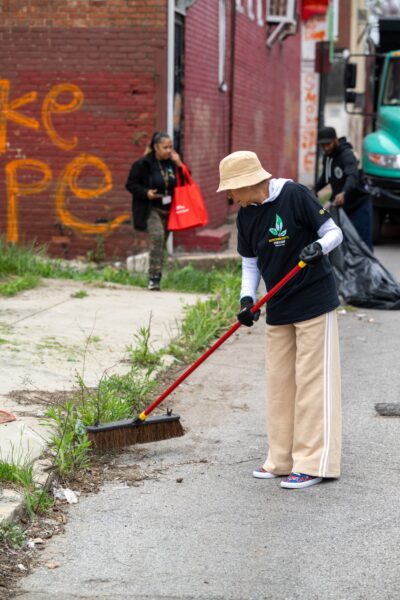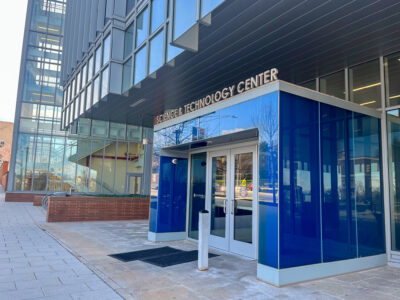A team from Johns Hopkins’ Center for Bioengineering Innovation and Design (CBID) will be among the finalists presenting prototypes this week in D.C. as part of an event putting a spotlight on the role of hardware in social innovation.
The NeMo Asssessment System, which has been in development for three years, is among the eight finalists at the American Society of Mechanical Engineers’ Innovation Showcase (ISHOW). Ahead of Thursday’s event, we talked to team members Dr. Soumya Acharya and CBID graduate student Shababa Matin, who are among a core team of six people working on the project.
The product, which has been tested and validated in rural Uganda and Bangladesh, provides tools that can be used to assess the health of newborn babies, and “danger signs” of disease. Matin said that the team set out to help a particularly vulnerable group: newborn children who are dying of preventable causes before they were able to receive care. In seeking to offer a solution that would allow care to be delivered quicker, the team is looking to shift the ability to provide assessments of these warning signs from community health workers — who have limited time and resources — to mothers.
NeMo’s technology assesses seven signs of neonatal illness that are recognized by the World Health Organization and offered as part of global guidance to doctors and healthcare workers.
“We took those established seven signs and put it in a simple-to-use, low-cost piece of accessible technology that mothers in these rural communities can easily use at their home in the first seven days of a baby’s life,” said Acharya.
NeMo’s main technology is a low-cost smart band that mothers place around a baby’s abdomen to measure temperature and respiratory rate. The company’s technology also includes a smartphone app that walks mothers through a series of questions associated with other warning signs. It includes video as well as questions that aim to make the interaction engaging.
“The NeMo app notifies the mother of any danger signs found during an assessment, and recommends that she seeks healthcare for her baby accordingly,” Matin said.
The technology is a result of hours spent testing in the field with mothers and healthcare workers.
The work has also involved addressing unknowns around usability and acceptability. During validation, the team found that providing access to low-cost smartphones through a rental model can increase access to technology as well, said Acharya.
It’s currently in a prototype phase, and could have potential to commercialize outside the umbrella of the university.
Acharya said the graduate students are the “driving force” behind the project. Collaborators from JHU also include Dr. Alain Bernard Labrique, founding director of Hopkins’ Global mHealth Initiative and Dr. William Christopher Golden, an assistant professor of pediatrics. In Uganda, Dr. Peter Waiswa of PTBi-Uganda and the InDepth Network at Makerere University has also been a key collaborator.
At the ISHOW on Thursday, teams will be vying for a share of $30,000 in seed grants and technical support. Find the other finalists here.
Join the conversation!
Find news, events, jobs and people who share your interests on Technical.ly's open community Slack

Baltimore daily roundup: HR's big AI-influenced shift; EDA Tech Hubs lessons; DCHD's $2.25M in grants

Baltimore daily roundup: Bowie State's esports reputation; AI impersonator arrested; EpiWatch names new CEO

Baltimore daily roundup: Real estate deal in the Peninsula; Missing $100M nitrile glove factory; Dirt bike clampdown


